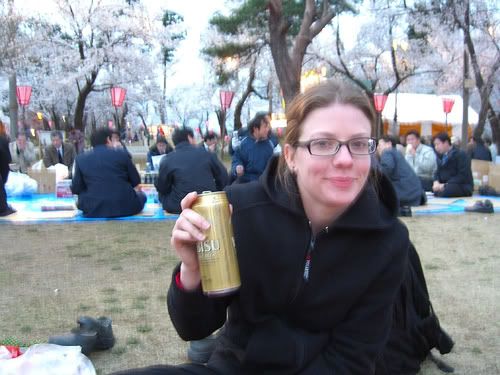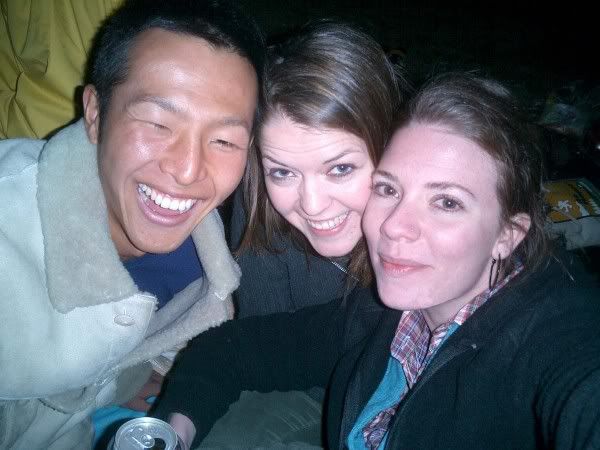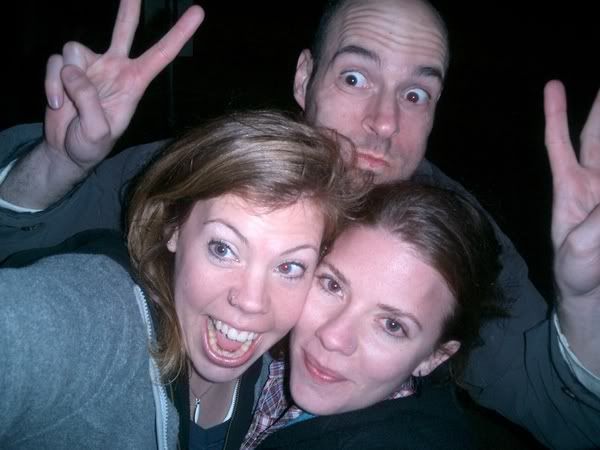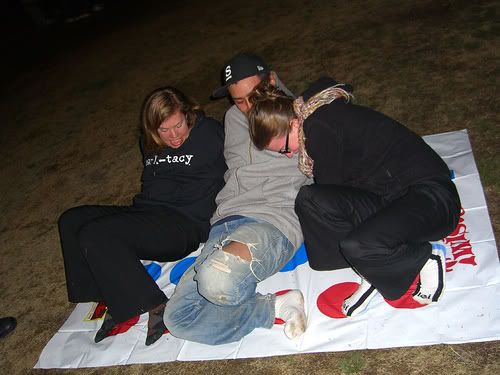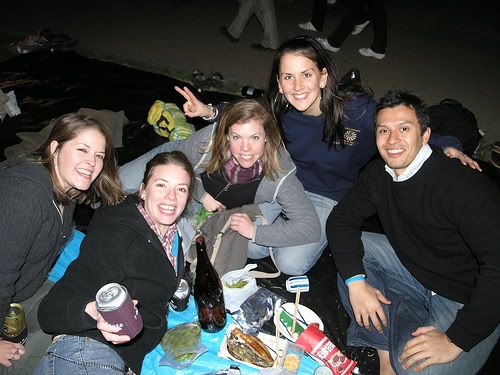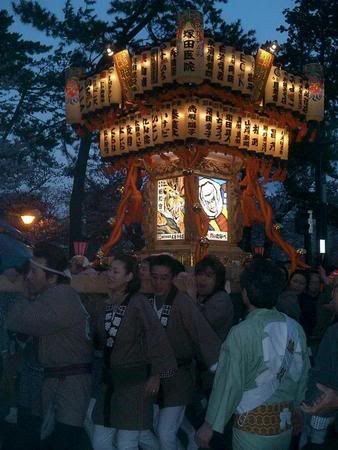pl.n. (used with a sing. or pl. verb)
1. A ground, usually white meal of dried and hulled corn kernels that is boiled and served as a breakfast food or side dish in the southern United States [syn: hominy grits]
i cooked grits for Hase the other night. topped them with plump, fresh shrimp sautéed with bacon, yellow peppers, onions and tomatoes covered in a creamy, homemade gravy that even granny would’ve been proud of. i was enthralled watching him take his first few bites. he navigated around the star of the dish, raking mounds of grits untouched by sauce onto his fork for sampling. [the utensil totally enriched the experience as its rare he eats with anything other than chopsticks.] he drew the fork close to his face for inspection. he savored the pellets on his tongue, attempted to squish single kernels between his teeth and being a fabulous chef, he submitted to his curiosity and questioned me incessantly about the farm to table grits process, which i was luckily equipped to answer after producing a radio story on
anson mills and their heirloom grain products a few years ago. watching him scrutinize this southern specialty reminded me ironically of the way i’ve been examining the american south recently.
i’ve begun to come more and more into my southern-ness in recent years. i first started to embrace the idea when i was working at south carolina educational radio with historian walter edgar. although he champions the region all too often to be continuously taken seriously, he is a well-educated and imaginative thinker who stoked my interest in the palpable yet intangible concept of being southern. from japan i’ve acquired a new appreciation for my american-ness and a fresh understanding of what it means to be southern, a perspective that i’m convinced was nurtured by viewing these concepts from afar, both geographically and intellectually.
a large part of what has spurred this introspection should also be credited to ‘grass roots internationalization’. I’ve been forced to examine concepts related to the southern part of the united states, it’s history, it’s racial plights and it’s uniqueness in the union in order to define and explain these ideas to others. somewhat counter intuitively, these concepts have become more muddled and less clear, more complicated and less decipherable the more i’ve pondered them. when explaining a new concept to someone it must be placed in terms that they are equipped to think with which is difficult here in japan where, although some regional differences exist, there are no racial discrepancies to speak of and there are no immigrant groups who have helped shape the culture in a truly profound way. while there are some local flavors to be found, in a place roughly the size of california, traditions and trends travel from hokkaido to kyushu with relative ease. people of japanese ethnicity have been solely responsible for the formation and progression of their culture since the conception of the nation practically. although japan had limited dealings with china and holland, their closed-door policy lasted until about 150 years ago when admiral matthew perry landed in japan carrying a letter from the u.s. president that virtually forced the country to open its borders. the country had no diplomatic experience and had trouble relating to the international community, a problem that is still evident today in the xenophobia that plagues many japanese people and the extreme shyness with which they deal with foreigners. as a result of their prolonged isolation, japanese people have nothing to which they can relate the beautiful hodge-podge culture of the american south. speaking about race relations or minority groups is difficult because they have no frame of reference. you must start from a point that exists in a vacuum of sorts, one that lacks historical understanding and cultural experience relevant to this topic, which is an explanation that’s often doomed to fail before it begins.
i just finished reading an excellent book, the bluest eye by toni morrison, which forced me to re-examine my notions about black and white peoples’ relationships and, by extension, the connection that exists between any racially disparate groups. the book also urges me to diverge slightly here into a discussion centered on the role of race. there are concepts, some positive and many negative, related to the ‘other’ that americans grow up internalizing as a result of our diverse surroundings. there are reoccurring ideas that you saw personified before you knew exactly how to term them. there are words that have passed your lips since before the time you wrote your age in double digits. there are labels that you mis-applied as you learned to regurgitate them in apropos situations. these social constructs have always been a part of our existence, and those of generations and generations before us. they are not natural but are learned perceptions that often bind our minds and hijack our intellect before we are old enough to discern the type of knowledge and understanding that will best equip us for a rewarding life. during the crisis in new orleans a teacher sat down next to me and asked “so, why does george bush hate black people?” my mind reeled as i grappled with where to begin unraveling this sensational idea perpetuated by the media, which is the average japanese person’s only connection to the daily goings on in the outside world.
then the other night i was watching a movie with a friend, monster’s ball, which is the story of a reformed racist who falls in love with a black woman. my emotions ranged from furiousness and frustration to relief and hopefulness. while i laughed and cringed, my companion appeared to be more intrigued by how i was reacting than by the flick itself. afterwards we had an interesting chat during which he admitted he can’t fully understand the power and beauty of the story because he doesn’t understand the extent and depth of the racial problems in america. then he asked me to explain the word ‘redneck’. i did my best to proffer up an accurate yet sensitive definition including the root of the word, its implications and its sometimes offensive usage. it’s not like being asian or being a woman, being a redneck is a term ascribed to those with certain personality traits, it’s more like an attitude. some find the term demeaning and some proudly claim it. his follow-up: ‘so there are no black rednecks?’ i disagreed saying a label such as this can possibly be applied to anyone who fits the socially agreed upon definition. he pressed on: ‘what about the word ‘nigger’?’ i did my best to relate the definitions but i’m not even sure if i fully understand them. i found myself questioning the true meanings of these terms, their socially accepted explanations, the methods by which they’ve invaded our vernacular and the ways we use them to imply completely disparate ideas, such as deep hatred or brotherly love depending on the situation. soothing racial tensions is a difficult problem steeped in layers and layers of history and hard to understand social dynamics. it’s a problem begging to be examined and massaged so the race-related knots that impair our society can be worked out. these problems are undoubtedly evident in every corner of america but i find it easiest and most difficult to scrutinize this issue as it relates to a place i’m familiar with, the american south. although i often find myself defending and berating the south, i’m coming to terms with it being the land where my roots are buried and the environment which helped fashion and form me.
as my friend scraped his second plate of grits clean, he mused on how similar it is to rice in production and cooking techniques. i think the parallel runs even deeper. they both represent an area's agrarian history and the connection to the land that has shaped its development. they embody the sense of place that is associated with special regions like the orient and the american south. and on this day, grits were doing their part to encourage cultural understanding, bridge a gap between ethnicities and stimulate intellectual curiosity; pretty serious stuff for a simple grain product. good job grits.


